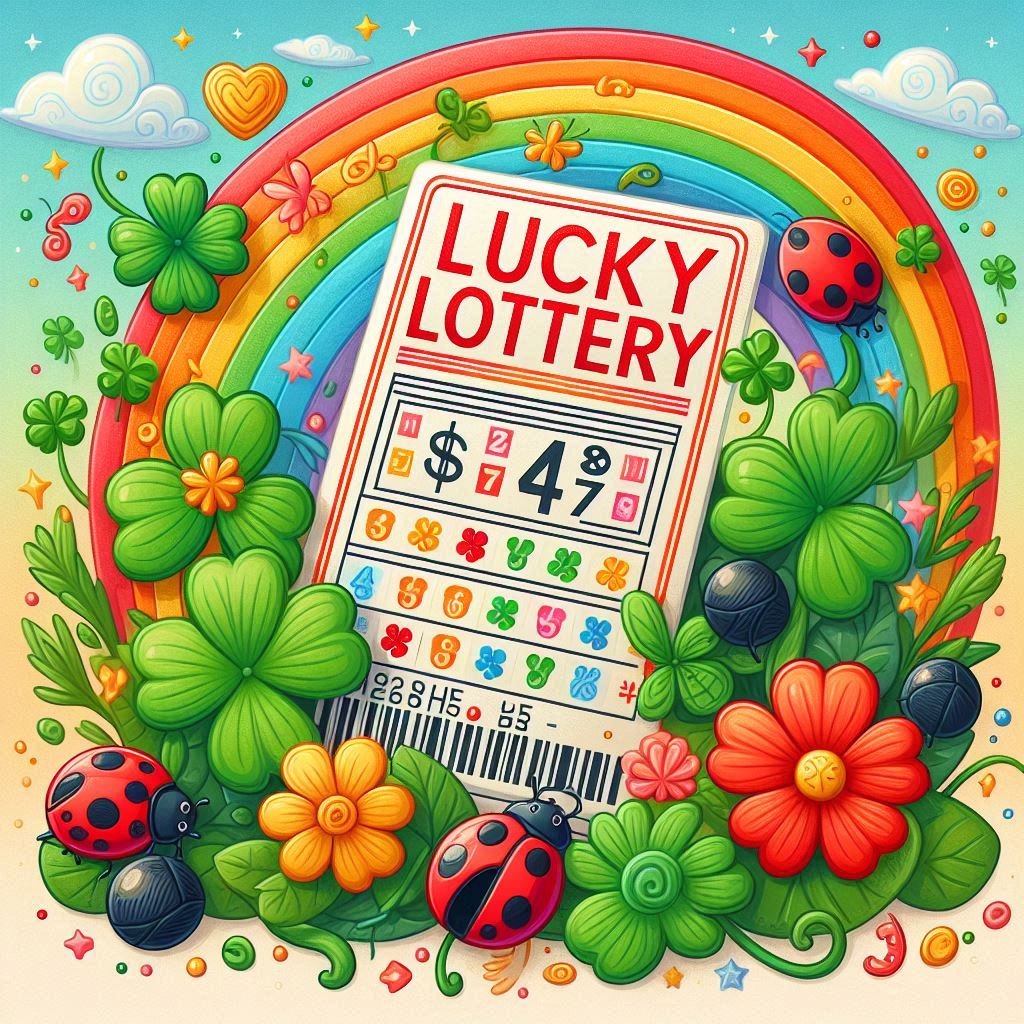Lucky Lottery

Introduction
Have you ever daydreamed about hitting the jackpot and transforming your life overnight? If so, you’re not alone! Lotteries have captured the imaginations of millions for centuries, offering a tantalizing promise of instant wealth. But what exactly is a lottery, and why do so many people flock to buy tickets? Let’s dive into the world of lucky lotteries and uncover their secrets.
The History of Lotteries
Ancient Origins
Lotteries aren’t a modern invention. Their roots stretch back to ancient civilizations. The Chinese Han Dynasty, around 205 BC, used keno slips to fund major projects like the Great Wall of China. Similarly, the Romans held lotteries to raise money for public works, with tickets distributed at lavish parties.
Modern Development
In Europe, the lottery as we know it started to take shape in the fifteenth and sixteenth centuries. The Italian city-state of Genoa held public lotteries, and by the 17th century, lotteries were established in France and England, often to support state finances. Today, lotteries are a global phenomenon, with countless variations and formats.
How Lotteries Work
Ticket Purchase
At its core, a lottery involves purchasing a ticket that grants the holder a chance to win a prize. Tickets can be bought from authorized retailers or online platforms, each bearing unique numbers or symbols.
Drawing Process
The drawing procedure, where the winning numbers are chosen at random, is where all the excitement comes to a head. This can be done through mechanical means, such as spinning drums, or electronic random number generators. The suspense builds as each number is revealed, inching some participants closer to their dreams.
Prize Distribution
Prizes vary depending on the lottery but often include multi-tiered rewards. While the grand prize garners the most attention, smaller prizes ensure that more participants get a taste of victory. The funds collected from ticket sales are used to pay out prizes and cover administrative costs, with any surplus often benefiting public services or charities.
Types of Lotteries
National Lotteries
National lotteries are government-sanctioned games that operate across entire countries. These tend to have the largest jackpots due to their broad player base.
State Lotteries
State lotteries are confined to individual states or regions within a country. They typically offer smaller prizes compared to national lotteries but can still deliver life-changing sums.
Online Lotteries
The digital age has ushered in the era of online lotteries, allowing players to participate from the comfort of their homes. These platforms often feature international games, expanding the range of possible jackpots.
Popular Lottery Games
Powerball

Powerball is one of the most famous lotteries in the United States, known for its enormous jackpots that regularly reach hundreds of millions of dollars. It involves selecting five numbers from a set of 69 and an additional Powerball number from a set of 26.
Mega Millions
Mega Millions rivals Powerball in popularity and prize size. Players select five numbers from a pool of 70 and one Mega Ball number from a pool of 25. Both lotteries have made headlines with record-breaking payouts.
EuroMillions
EuroMillions is a transnational lottery enjoyed by participants across several European countries. Players choose five main numbers from 1 to 50 and two Lucky Star numbers from 1 to 12. The game boasts significant jackpots and numerous prize tiers.
Lottery Odds and Probability
Understanding Lottery Odds
The odds of winning the lottery are notoriously slim, but understanding these odds can help set realistic expectations. For instance, the odds of winning the Powerball jackpot are roughly 1 in 292 million, while the odds for Mega Millions are about 1 in 302 million.
Strategies to Improve Your Chances
While no strategy guarantees a win, some players employ tactics like purchasing multiple tickets, joining lottery pools, or choosing less popular number combinations to increase their odds slightly.
Lottery Scams and How to Avoid Them
Common Lottery Scams
Unfortunately, the allure of easy money attracts scammers. Common schemes include fake lottery notifications, where victims are asked to pay fees to claim non-existent prizes, and counterfeit tickets sold online or in person.
Tips to Protect Yourself
To avoid falling victim to lottery scams, only buy tickets from reputable sources, never share personal information with unknown contacts, and be wary of unsolicited messages claiming you’ve won a lottery you didn’t enter.
The Psychology of Lotteries
Why People Play
The lottery taps into the human desire for quick, transformative success. The low cost of entry and the enormous potential reward create a potent combination that draws people in, even if the odds are against them.
The Thrill of the Game
Playing the lottery isn’t just about winning; it’s about the excitement and anticipation. The thrill of imagining what you would do with the winnings can be as enjoyable as the game itself.
The Impact of Lotteries on Society
Economic Benefits
Lotteries generate significant revenue for governments and can fund public projects, education, and community initiatives. They also create jobs and stimulate local economies through ticket sales and related activities.
Social Consequences
However, lotteries can have negative social impacts, particularly among lower-income players who may spend disproportionately on tickets. Responsible gambling measures and public awareness campaigns are essential to mitigate these effects.
Famous Lottery Winners
Rags to Riches Stories
Some lottery winners have heartwarming stories of transformation, using their newfound wealth to pay off debts, support family, and contribute to charitable causes.
Lessons Learned from Winners
However, not all stories have happy endings. Some winners face financial mismanagement, strained relationships, and other challenges. Learning from their experiences can provide valuable insights for future winners.
How to Play the Lottery Responsibly
Setting a Budget
To avoid the pitfalls of problem gambling, it’s crucial to set a budget for lottery play and stick to it. Treat the lottery as a form of entertainment rather than an investment.
Recognizing the Signs of Gambling Addiction
Recognize the warning symptoms of gambling addiction, which include going over budget, chasing losses, and ignoring obligations. Seek help if you or someone you know struggles with these issues.
Tax Implications of Winning the Lottery
Federal Taxes
Lottery wins in the US are liable to federal income tax. The IRS requires immediate withholding of a portion of the winnings, and winners must report the entire amount on their tax returns.
State Taxes
State taxes on lottery winnings vary. Some states have no income tax, while others impose significant rates. It’s essential to understand your state’s tax laws to prepare for the financial impact.
Lump Sum vs. Annuity
Winners can choose between a lump sum payment or an annuity that spreads the winnings over several years. Each option has tax implications and financial considerations, so it’s wise to consult with a financial advisor.
Lottery Myths and Facts
Common Misconceptions
Many myths surround lotteries, such as the belief that certain numbers are “due” to win or that playing more frequently increases your chances. These misconceptions can lead to unrealistic expectations.
The Truth About Winning
The truth is that lottery draws are entirely random, and every number combination has an equal chance of being selected. Understanding this can help you play more responsibly.
The Future of Lotteries
Technological Advancements
Technology continues to reshape the lottery industry. Innovations like blockchain and artificial intelligence promise increased transparency, security, and efficiency in lottery operations.
Trends in Lottery Gaming
Trends such as online platforms, instant games, and international lotteries are gaining popularity, offering players more ways to participate and win.
Conclusion
The lottery is a fascinating blend of history, psychology, and economics, wrapped in the thrill of chance. Whether you’re a casual player or a dedicated enthusiast, it’s important to approach the game with a clear understanding of the odds and the potential impact on your life. Play smart, stay informed, and most importantly, enjoy the journey.
FAQs
Is it possible for me to increase my lottery winnings?
While you can’t change the odds, joining a lottery pool or choosing less popular number combinations can slightly increase your chances.
Are lottery winnings taxable?
Yes, in most countries, lottery winnings are subject to federal and, in some cases, state taxes.
How can I avoid lottery scams?
Only purchase tickets from authorized sources, be cautious of unsolicited messages claiming you’ve won, and never pay upfront fees to claim a prize.
What should I do if I win the lottery?
Seek financial and legal advice immediately, keep your ticket safe, and consider your options carefully before making any public announcements.
Is playing the lottery a form of gambling addiction?
It can be if not managed responsibly. Set a budget, play for fun, and be aware of the signs of problem gambling.
